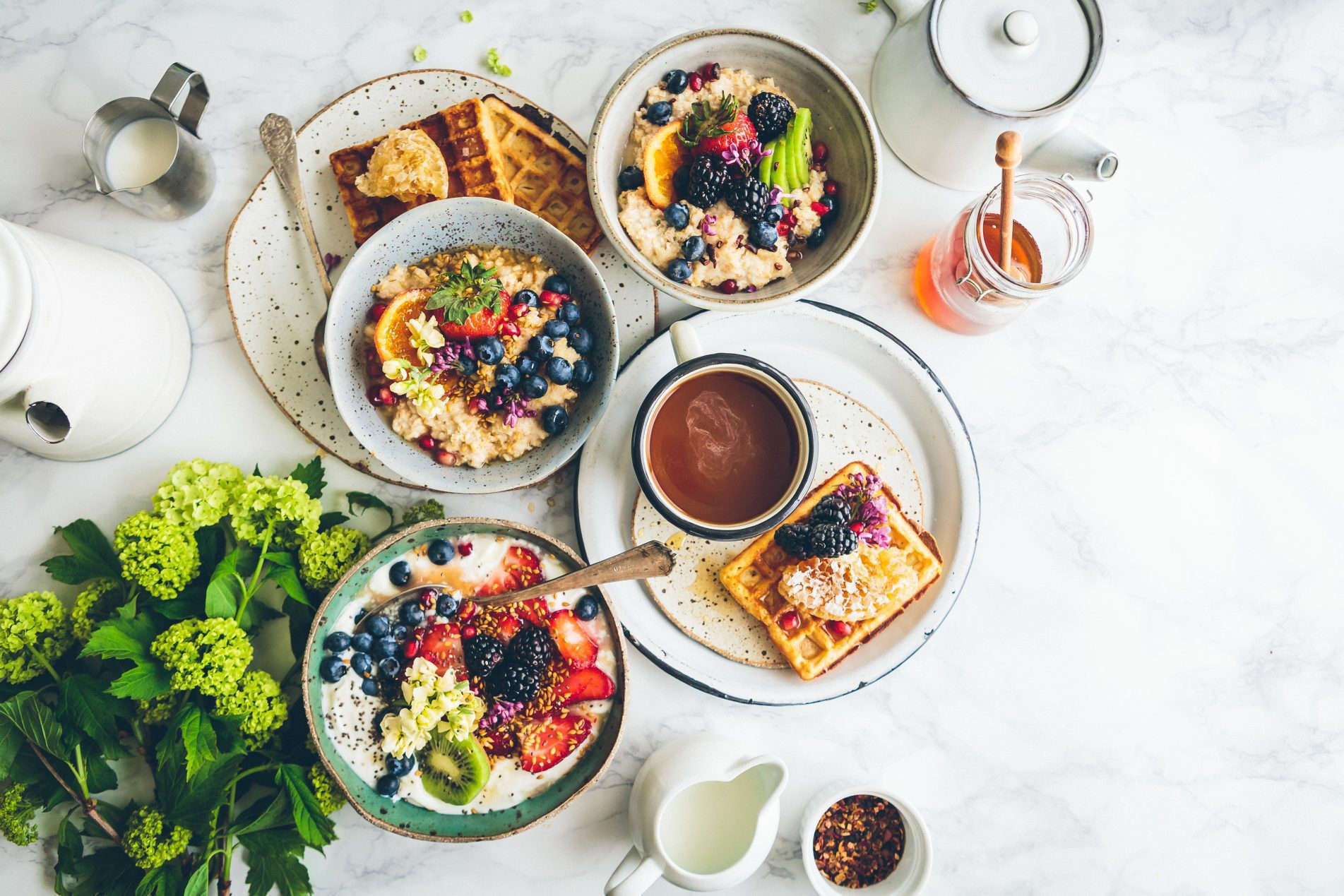
The holidays are upon us! For many, these celebrations center around festive meals with family and friends. Afterward, who hasn’t lamented the overindulgence and vowed to get back on track in the new year? But for alcoholics and addicts in recovery, finding a normal relationship with food and nutrition might be a battle year round!
Eating Healthy, Feeling Better
Overeating, never eating, or not eating healthy are all challenges many of us have faced. Here we offer some suggestions on finding a better and healthy relationship with food to get the nourishment you need for good living. These suggestions are broadly intended for those who feel they could improve their relationship with food and nutrition. If you have an eating disorder, while some of these tips might be helpful, we urge you to seek out qualified help. You are not alone, recovery is possible.
In early recovery, many of us are faced with learning life skills from the ground up. And as our bodies and health often have been painfully neglected, they offer a good place to start our healing. When we sober up, we frequently discover that basic self-care like eating, shopping for food, and cooking can be baffling.
Some of us go whole days forgetting to eat entirely, then get into an utter panic about something seemingly unrelated, only to realize some time later that perhaps this bout of insanity was influenced by a lack of basic calorie intake. Others, when not acting out in other addictive ways, suddenly become obsessed with food and overindulge, only to feel full of guilt and discomfort.
How can we begin to develop a healthy relationship with food, and actually eating healthy to nourish ourselves? Here are four tips to get you started….
1. Eat When You’re Hungry
It may sound overly basic, but learning to check in with your body occasionally and ask yourself if you are really hungry is a true skill. Alcoholics and addicts notoriously override their bodies ‘ most fundamental systems. Learning to hone into how we are feeling and what we actually need can take some time and refinement. Eating healthy will become easier as time goes on in your recovery. Food is essential for your body’s functionality, try not to wait too long to refuel your body.
2. …. But Not Too Much
There may be plenty of times when we are bored, anxious or uncomfortable and suddenly have a craving for junk food. A useful tool can be to ask yourself, “Am I hungry enough for an apple?” Offering yourself a healthy alternative and seeing how you respond can be a great gauge for your actual motive. If the healthier option has zero appeal, you may not actually be hungry, but rather just looking for a distraction, an energy boost, or the like.
Learning to slow down, such as taking deep breaths and smelling your food before eating, is another way to transform your relationship with food. Eating can become a reverent act, full of gratitude to the planet, the farmers, and the people and things that made your meal possible. Eating healthy will become second nature as you continue to recover.
3. Meal Planning
Another solid principle for success involves planning for meals in advance. Setting aside time for breakfast, lunch, a snack and dinner can add structure and saneness to one’s food habits. Planning ahead can be beneficial for both those inclined to overindulge and those who neglect to eat entirely. Pre-arranged menus can also offer relief and sanity.
They limit the times when you are starving but have nothing on hand, leaving you with no choice but whatever might be available at the nearest gas station or convenience store. Ideally, we eat for self-care, love, and nourishment of our bodies. When we are eating in this spirit, we naturally make choices that are more nutritious and fuel us, instead of leaving us uncomfortable, miserable, and malnourished.
4. Shopping and Cooking 101
Learning to grocery shop and cook a few basic things will make the whole process of eating for wellness infinitely easier. It can be useful to pick 3-4 meals that you enjoy eating, and that you feel relatively good after you eat, and learn to prepare them. Straightforward meals with minimal ingredients and prepare good places to start.
There are scores of apps and websites with easy recipes for almost any type of cuisine, as well as online videos with clear-cut instructions. Writing down the needed ingredients for a few dishes and going to the store with a list makes it more likely that you’ll eat well and less likely that you’ll have a bag of chips or cookies for dinner.
Whole, minimally processed foods, and lots of fruits and vegetables, combined with some protein is a good recipe for success. Learning to cook a few dishes is easier and more satisfying than you think, and can offer a great self-esteem boost.
Most of us found that developing a happy relationship with food and eating took time, but was critical to feeling comfortable and happy in our bodies again. In our experience, taking care of the body is vital to the spirit, and ultimately enables us to be useful, joyful, and whole.
*The foregoing is intended broadly for individuals who want to practice better self-care with regards to eating. If you have an eating disorder and want help, please see our Treatment page.